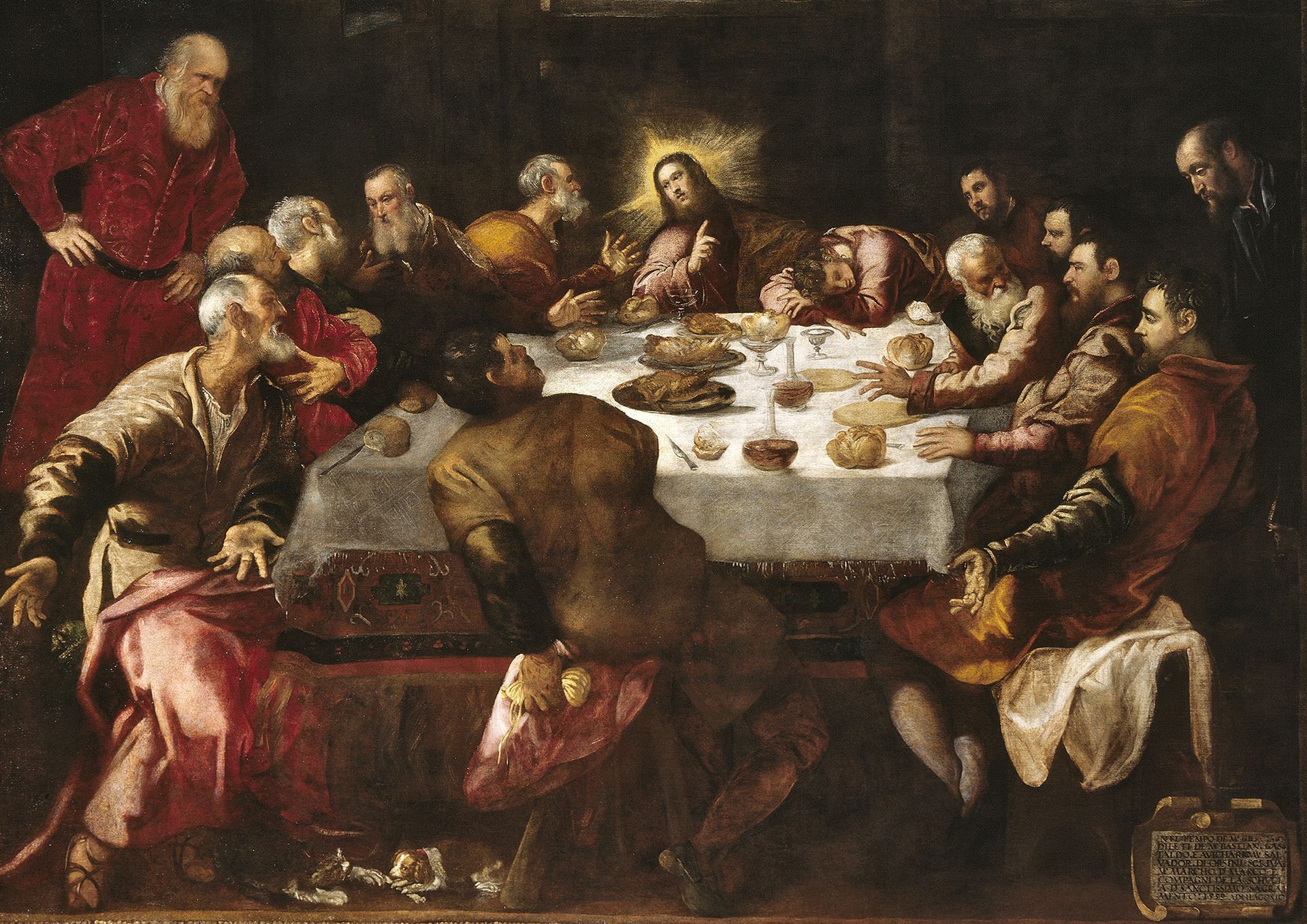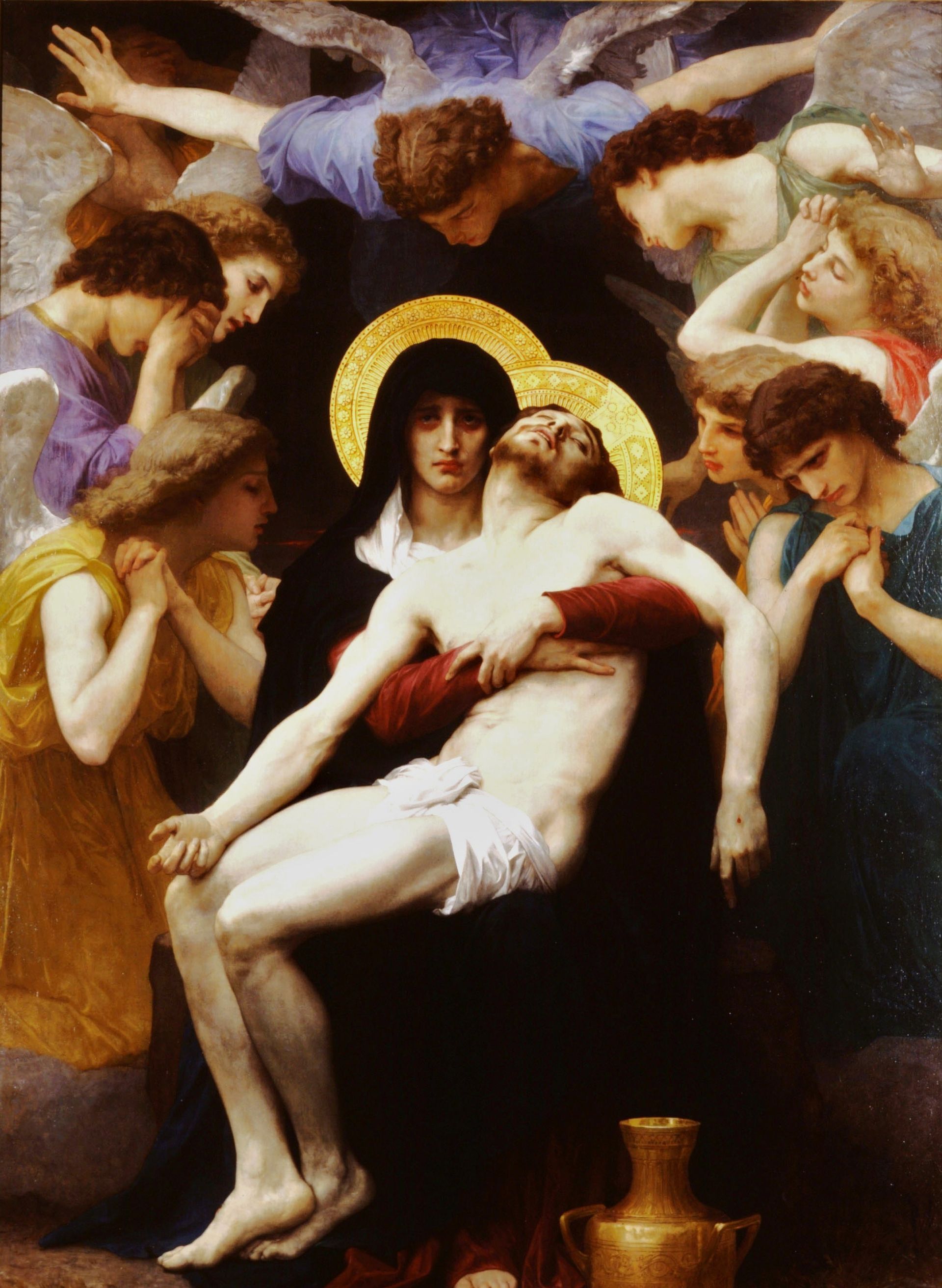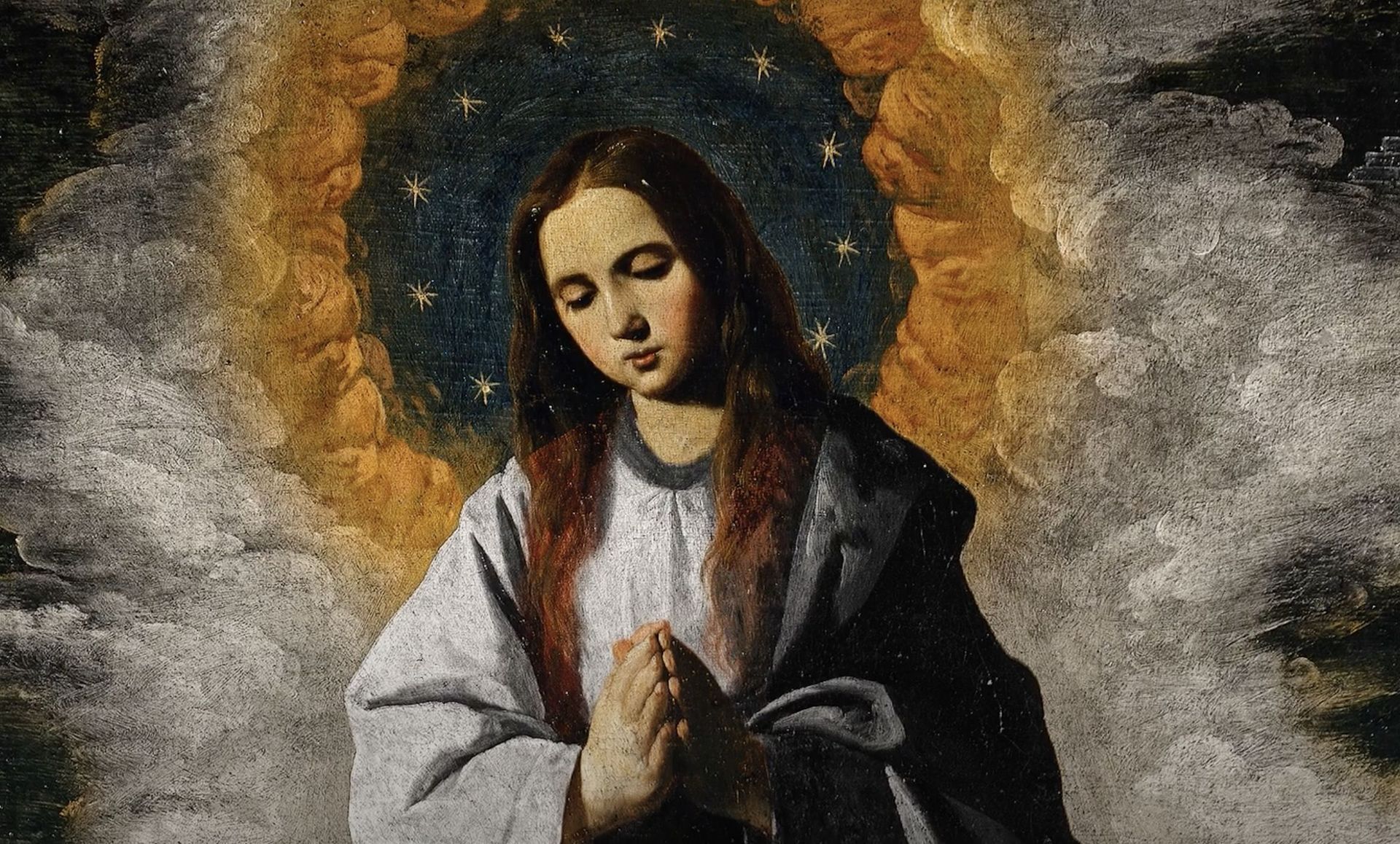21st Sunday in Ordinary Time 2024
Humility and Christ's Teaching
By now, I am certain it has occurred to some readers to wonder why, for the last four weeks, we have had reflections from St. Benedict’s Rule to accompany our readings. St. Benedict has been instructing on obedience, silence, and humility—how does that connect with our Lord’s instruction in John 6?
The answer is simple: what St. Benedict instructs directly, our Lord illustrates in practice. In John 6, we see a progression where many disciples follow Christ because of the miracle He performs with the fish and loaves, but then the majority turn away when He teaches foreshadowing the Holy Eucharist. They followed what appealed to them, but rejected His teaching that was difficult. He calls them to receive the bread from Heaven which gives eternal life, but they balk, rejecting the very first instruction He had given them: This is the work of God, that you believe in the One He sent. This discourse all follows that instruction, they ask, What sign can you do, that we may see and believe in you? Christ tells them they must receive Him, the Bread of Heaven, and they must commit themselves fully, eating His flesh and drinking His blood. They answer with doubt, How can this man give us His flesh to eat? and again, This saying is hard; who can accept it? Then, many of them returned to their former way of life.
St. Benedict instructs, Let us follow the Prophet’s counsel: “I said, I have resolved to keep watch over my ways that I may never sin with my tongue. I have put a guard on my mouth. I was silent and was humbled, and I refrained even from good words.” (RB 6:1) This very obedience, however, will be acceptable to God and agreeable to men only if compliance with what is commanded is not cringing or sluggish or healf-hearted, but free from any grumbling or any reaction of unwillingness. (RB 5:14)
The first sign of trouble in the crowd of John 6 came as The Jews murmured about Jesus and they said Is this not Jesus, the son of Joseph? Do we not know his father and mother? Then how can He say, “I have come down from heaven”? The grumbling and murmuring of the crowd was the spark of the infection that led them astray. It was the canary in the coal mine that showed the emergence of pride over humility and led to disobedience.
The second step of humility is that a man loves not his own will nor takes pleasure in the satisfaction of his desires. (RB 7:31) Our Lord knew at once the hearts of the many disciples who pursued Him to Capernaum, Amen, amen, I say to you, you are looking for Me not because you saw signs but because you ate the loaves and were filled. Do not work for food that perishes but for the food that endures for eternal life. He saw that inclination toward satisfaction of their own desires, and He warned them where it would lead, but in want of humility, that warning was unheeded.
The fourth step of humility is that in this obedience under difficult, unfavorable, or even unjust conditions, his heart quietly embraces suffering and endures it without weakening or seeking escape. Another passage shows how the faithful must endure everything, even contradiction, for the Lord’s sake, saying in the person of those who suffer, “For your sake we are put to death continually;” (RB 7:35-36, 38) Humility is the key ingredient in obedience, which is the necessary disposition of the will to follow Christ. The crowd was not inclined to leave behind mother, father, brother, or sister; the crowd valued the comfort of the approval of the strangers left and right. They took in the grumbling, they acquiesced to the pressure of peers, they followed the ways which men call right that in the end plunge into the depths of hell. (Prov 16:25; RB 7:21). They returned to their former way of life and no longer accompanied him. From this point, the multitudes would never follow Him again.
But what of the Twelve? Such people as these immediately put aside their own concerns, abandon their own will, and lay down whatever they have in hand, leaving it unfinished. With the ready step of obedience, they follow the voice of authority in their actions. (RB 5:7-8) We see this readily when they first heard the call of Christ, they abandoned their nets to follow Him. They were not fixated on the importance of their work or desires, they did not care about the thoughts of anyone who may have witnessed them. They abandoned what they had to pursue the Bread of Everlasting Life. They left the ways which men call right to pursue the narrow road that leads to life. (Matt 7:14; RB 5:11). Jesus asked them, Do you also want to leave? St. Peter answered for the Twelve, Master, to whom shall we go? You have the words of eternal life.
They no longer live by their own judgment, giving in to their whims and appetites. Men of this resolve unquestionably conform to the saying of the Lord: “I have come not to do my own will, but the will of him who sent me.” (John 6:38; RB 5:12,13) Heeding the warning of our Lord, and listening in humility to the teaching of St. Benedict, we must free ourselves from the vices which take us down the broad path of destruction. If we want to follow the narrow way, we must be free of the vices of grumbling, gossip, detraction, and all manner of ill speech. We must esteem silence and listen humbly. We must esteem ourselves little so that our own desires do not obstruct our will from being conformed to His. We must obey unhesitatingly and with joy. These actions prepare us for the ultimate obedience of casting off every disordered attachment as we plunge willingly into the fires of purgation—accepting without reservation the suffering which brings us to God in eternity.
The labor of obedience will bring you back to him from whom you had drifted through the sloth of disobedience. (RB Prologue:2) Through discipline we learn the virtues of humility and obedience, and through practice we grow in love that impels [us] to pursue everlasting life, making us eager to take the narrow road road. (RB 5:10,11) This message of mine is for you, then, if you are ready to give up your own will, once and for all, and armed with the strong and noble weapons of obedience to do battle for the true King, Christ the Lord. Do not be daunted immediately by fear and run away from the road that leads to salvation. It is bound to be narrow at the outset. But as we progress in this way of life and in faith, we shall run on the path of God’s commandments, our hearts overflowing with the inexpressible delight of love. Never swerving from his instructions, then, but faithfully observing his teaching until death, we shall through patience share in the sufferings of Christ that we may deserve also to share in his kingdom. Amen. (RB Prologue:3,48-50)
Pax et Bonum
Contact info
2203 West Market Street, Greensboro, NC 27403-1515
336-274-6520
frontdesk@olgchurch.org














